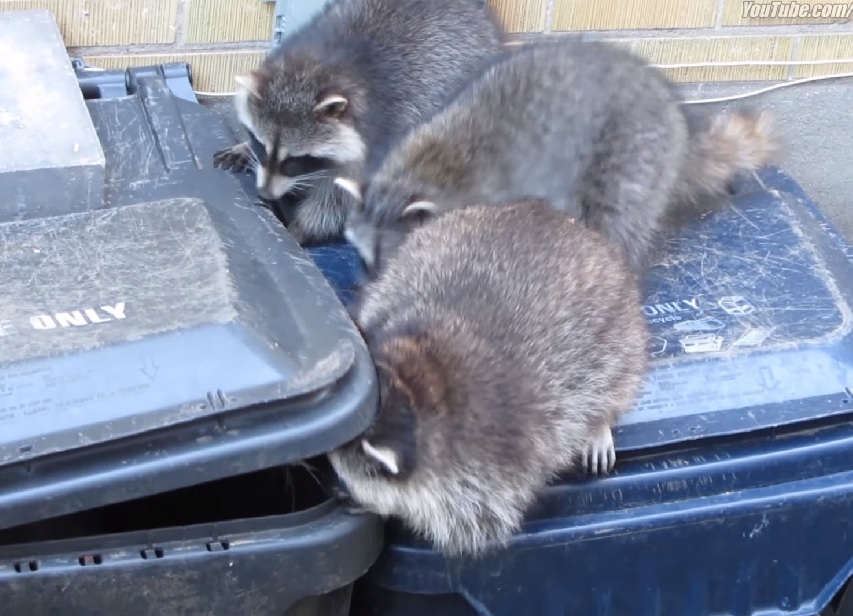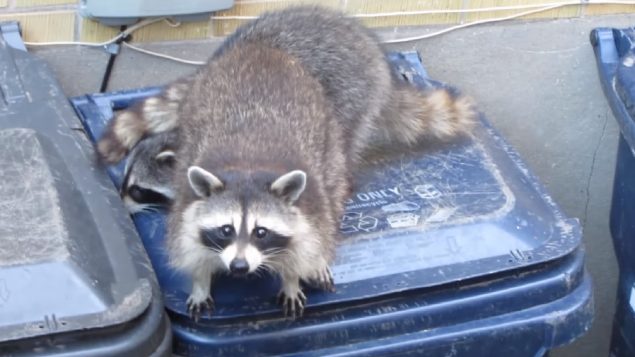Seems that city raccoons are living the human life-too much.
In an urban setting there’s often a lot of household and fast food waste that makes a handy meal for the bold urban omnivores.
All that human junk food also seems to be resulting in some human health problems, notably obesity, and hyperglycemia.
A collaborative study involving scientists from Laurention University in Sudbury Ontario looked at the health of urban, semi-urban, and country raccoons and compared their health.
The urban raccoons studied found much of their food at the Toronto Zoo fast food garbage bins. The second group studied were at a conservation area and so had some access to human garbage from bins there, while the third group were country raccoons from a farming area and had little access to human foods.
The results were as might be expected.
A diet heavy on leftover bits of burgers, and pizza crusts resulted in fat raccoons with high blood glucose levels, similar to diabetics.
Less human food meant fewer weight and blood sugar issues.

Got it! Noting the difference between the recycling bins and the garbage bin, one of the raccoons has learned how to lift the lid, to get inside. A university study found that a diet of leftover human junk food, and other human food waste leads to overweight in raccoons and hyperglycemia. (danielscissorhands-Youtube)
The study was published in the journal Conservation Physiology under the title “Enhanced access to anthropogenic food waste is related to hyperglycemia in raccoons (Procyon lotor)” (open access HERE)
The lead researcher Albrecht Schulte-Hostedde, a professor of evolutionary ecology at Laurentian, says while they can establish these facts, what they don’t know yet are the consequences for the animals of a human diet. For example, whether they do develop the same health problems as humans including such things as diabetes, reproductive problems, and perhaps a shorter life span.
He says for raccoons eating the diet heavy on junk food it doesn’t necessarily mean they’re unhealthy although that’s likely, but notes further study is needed to determine whether they’re affected the same way as humans.
Additional information-sources







For reasons beyond our control, and for an undetermined period of time, our comment section is now closed. However, our social networks remain open to your contributions.